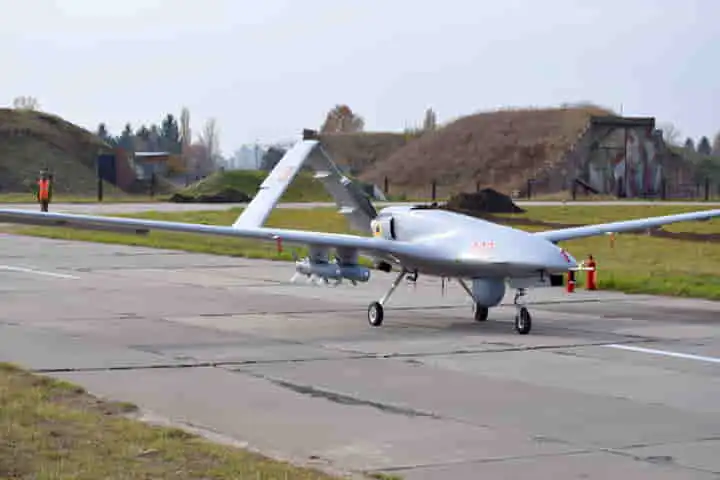Ethiopia has been in the grip of a civil war since November 2020. The Ethiopian army was struggling against the rebel forces of the Tigrayan People’s Liberation Force (TPLF). With its battlefield victories, TPLF was even poised to attack the capital Addis Ababa and many observers had expressed grave doubts about the survival of the regime of Prime Minister (PM) Abiy Ahmed.
However, the effective use of unmanned aerial vehicles also known as drones, including Turkey-supplied Bayraktar-TB-2, by the Ethiopian army has dramatically changed the course of the war in its favour. The TPLF is in retreat now and has moved back to the northern Tigray region. It is making efforts to find a peaceful solution to the conflict.
Last year, in Libya, the embattled Government of National Accord (GNA) has used Turkish-supplied Bayraktar drones against the Libyan National Army (LNA) led by General Khalifa Haftar. Turkish drones were effective in attacking ground troops, providing necessary air cover, and disrupting LNA supplies.
The timely Turkish military support proved critical in bolstering the capabilities of GNA. As a result, GNA forces succeeded in breaking the momentum of LNA and thwarting the threat to Tripoli. The war entered the phase of a stalemate and since then has paved the way for a political solution to the decade-long conflict.
It was clear that, just like Ethiopia, Turkish drones changed the course of the Libyan civil war. Both these instances point towards the decisive role of Turkish drones in shaping the outcomes of these wars.
In development since 2007, Turkish-made Bayraktar-TB2 is a medium altitude long-range UAV system that can carry a payload of 150 kg and operate during the day and night. Each system consists of “six aerial vehicles, two ground control stations (GCS), three ground data terminals (GDTs), two remote video terminals (RVTs) and ground support equipment”.
Owing to the impressive performance and reliability of TB2 drones, in the last few years, Turkey has emerged as a major supplier of drones globally. Turkish drones are supposedly cheaper than drones manufactured by companies from Israel, China, and America.
Apart from Ethiopia and Libya, countries such as Ukraine, Morocco, Poland, Azerbaijan, Kyrgyzstan, Qatar, and Turkmenistan are interested in acquiring Turkish drones. Some of these countries have either placed orders or are interested in purchasing these drones. Qatar and Azerbaijan are already operating a fleet of Turkish drones.
Last year's Azerbaijan-Armenia war was seen as the most effective global advertisement for Turkish drones. Azeri forces utilised drones to devastating effect and inflicted a humiliating defeat on Armenia. Since then, the demand for Turkish drones has gone up significantly.
During the latest visit of Turkish President Recep Tayyip Erdogan to Africa in October, he said that “everywhere I go in Africa, everyone asks about UAVs”. Evidently, Turkey’s weapons trade with Ethiopia and Morocco has gone up significantly in 2021. Overall, Turkey has gradually been emerging as a major defence supplier of Africa. The exports of battle-tested drones are likely to carve out an important place for Turkey in African weapons markets.
The supply of Bayraktar-TB2 drones is geared to advance Turkey’s commercial and geopolitical interests. The drones are manufactured by a company run by President Erdogan’s son-in-law Haluk Bayraktar. It ensures continued state support in deals to export drones.
Interestingly, Turkey’s rise as a major drone power and the fast-increasing exports has the potential to complicate its diplomatic engagements. Turkish weapons deals with Ethiopia and Ukraine have not gone down well in Egypt and Russia respectively.
Turkey enjoys close diplomatic and defence ties with Pakistan. Recently, the Turkish Aerospace Industries (TAI) signed a contract with the National Engineering and Science Commission (NESCOM) of Pakistan to co-produce Anka military drones. Turkish Air Force, Navy, and intelligence agencies use Anka drones.
Turkey has offered to sell drones to India as well. Zyron dynamics, a Turkish drone manufacturer, has sold 30% of its stakes to DCM Shriram Industries for US $ 3.5 million in August 2021. The company is preparing to deliver mini-multirotor UAVs to India in 2022. Through India, it hopes to expand its market in the wider Asia-Pacific region.
For Turkey, despite teething domestic economic troubles drone exports are paving the way for greater geopolitical influence. The conflicts in Africa and Asia have underlined this reality.
Also Read: 3rd Turkey-Africa summit commits to boosting cooperation in various fields
(Sankalp Gurjar is a strategic analyst based in New Delhi.)




















